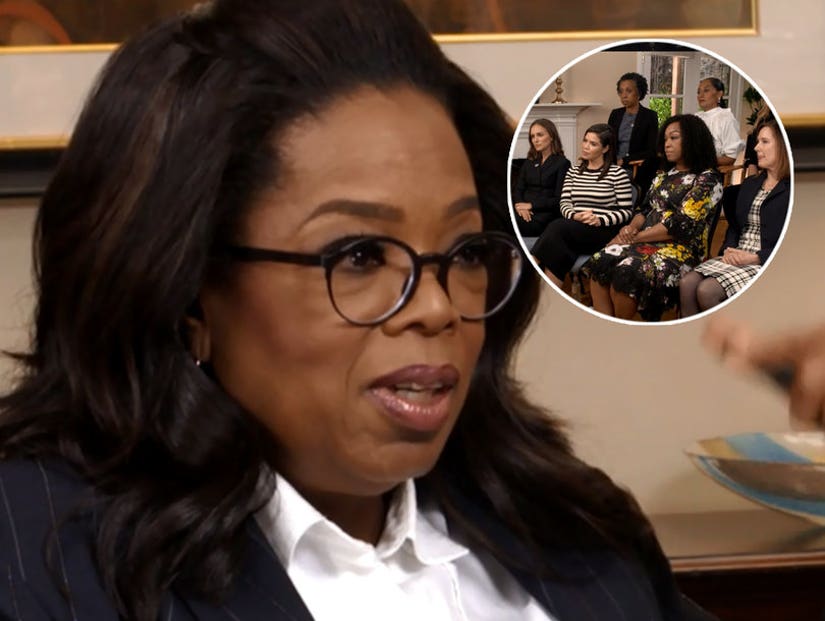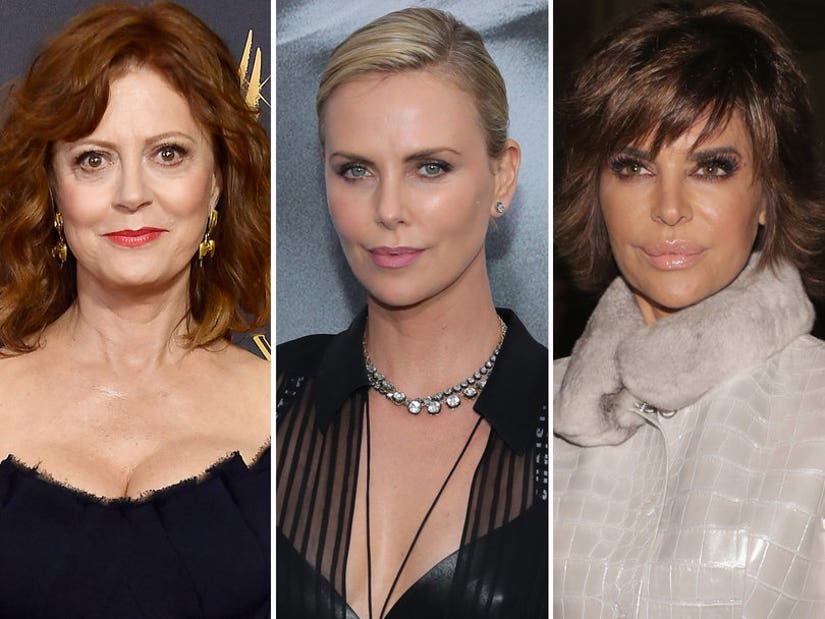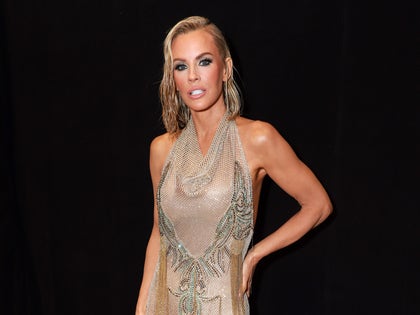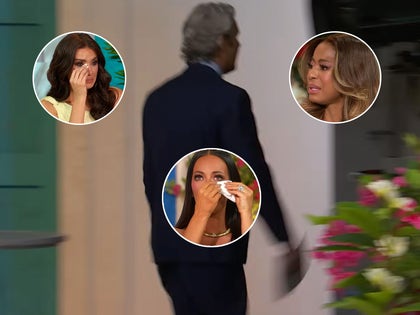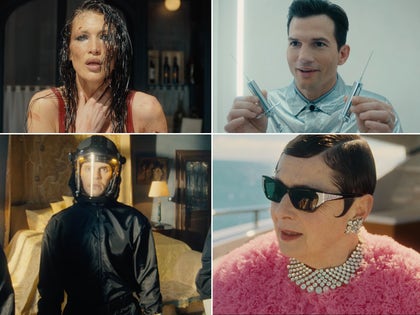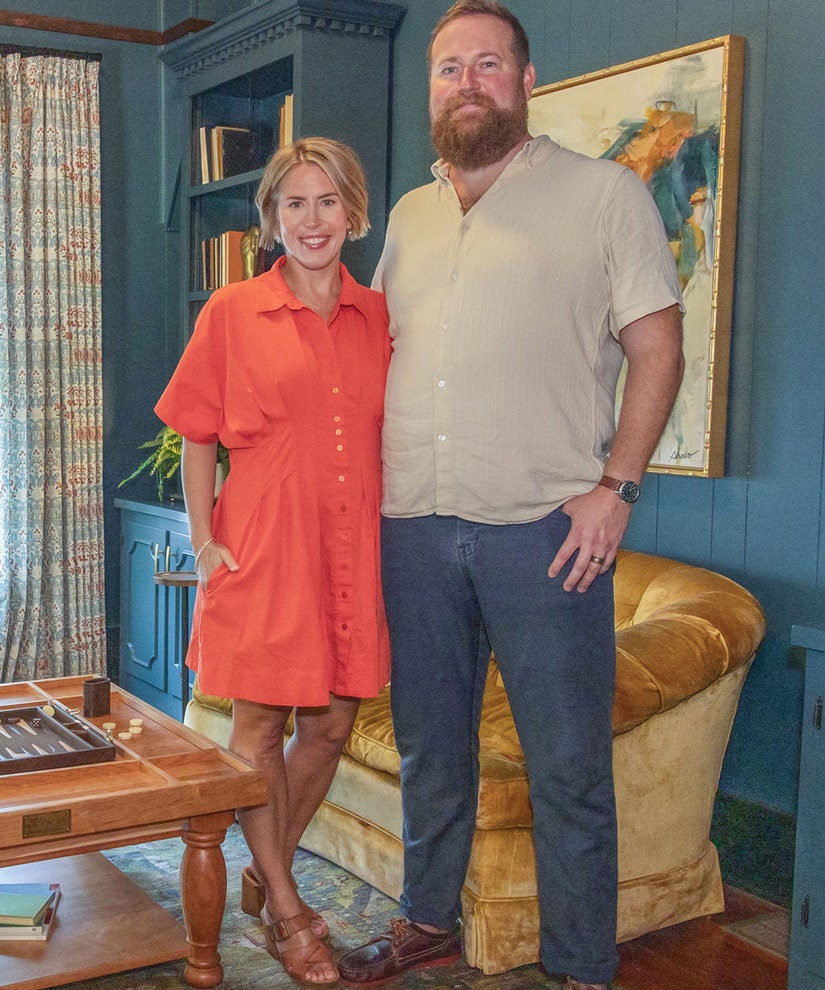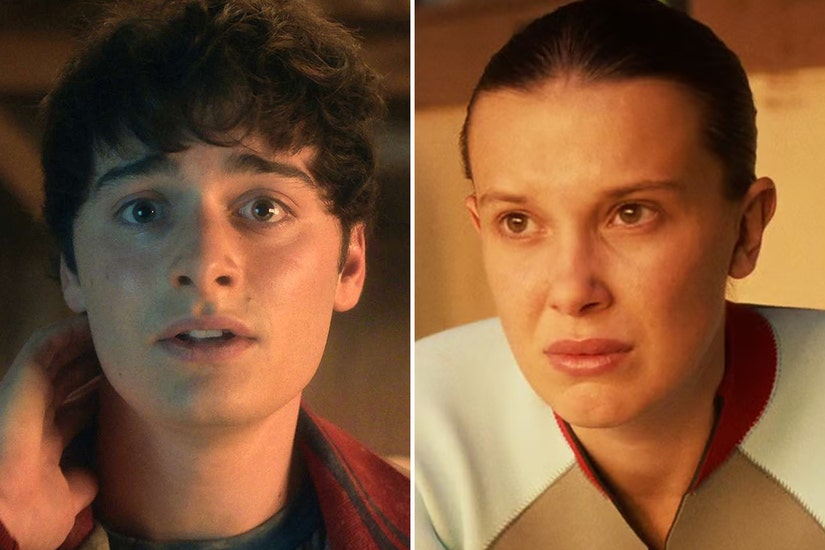Oprah Winfrey sat down with some of the more prominent figures of the #TimesUp campaign for Sunday's "CBS This Morning" and had some important questions, like how activists plan to keep up the momentum in 2018.
In the segment, which was taped the day after the Golden Globes, Winfrey wanted to know how #TimesUp intends to be beneficial to those outside of the entertainment community, how people are supposed to know how to navigate through the #MeToo era, and if there's such a thing as second chances for those accused.
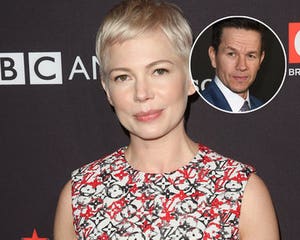 Getty
Getty
Hollywood Furious Michelle Williams Made 1 Percent of Mark Wahlberg's $1.5 Million Pay Day for Same Movie
View StoryJoining her for this frank discussion were actresses America Ferrara, Natalie Portman, Tracee Ellis-Ross and Reese Witherspoon, as well as Lucasfilm president Kathleen Kennedy and entertainment attorney Nina Shaw. While the assembled women carried the passion of the #MeToo movement, they didn't yet have answers as to what comes next; they just know it's important to keep the conversation moving forward and in the forefront of cultural thought.
How Can #TimesUp Help People Outside Entertainment?
Right away, Winfrey challenged the assembled women to explain to her what the "Time's Up" campaign is going to do "to help the waitress, the farm worker, the factory worker, the caregiver" beyond raising awareness of sexual harassment as a problem. They didn't have a clear answer.
"We have to maintain the momentum of this conversation, because they can't," said Kennedy. "It's not only in what we're doing with a group like #TimesUp, but it's in the content we're creating, the conversations we're having. We have to continue this work because we do have the spotlight."
Witherspoon added, "Women who are workers in this country have nothing to gain in certain instances by coming forward. But we want to help. It gives me strength to hopefully help other women."
The ambition and the desire is there, if not a clear path forward just yet. One of the initiatives for "Time's Up" is to strengthen harassment and discrimination laws, as well as seeking gender parity at the top in Hollywood studios and talent agencies.
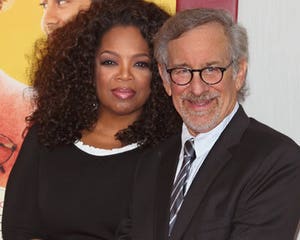 Getty
Getty
Steven Spielberg 'Will Back' Oprah Winfrey for President If She Runs in 2020
View StoryIs There a Path for Forgiveness or Second Chances?
Awash in a sea of powerful men being toppled from their heights by accusations of sexual misconduct and sexual harassment, Winfrey brought up a more recent topic regarding differing types of harassment. "How do we make the punishment fit the crime for somebody who's saying, 'I was just complimenting you,' versus somebody who is actively a predator?" she asked.
"Maybe there isn't an answer for that yet," Ross admitted.
Also hotly debated in this era is whether or not second chances should even be allowed, but the women thought maybe this wasn't the time for that discussion just yet.
"At a certain point there has to be room for reconciliation," Rhimes said. "But a lot of people don't think that right now -- and a lot of women have the right to not feel that right now."
Ferrara took it a step forward, relishing the uncertainty. "As a culture we've gone from not listening, hearing or believing women, and how were we going to skip over the whole part where women get to be heard, and go straight to the redemption of the perpetrators?" she asked. "Can't we live in that space where it's okay for perpetrators to be a little bit uncomfortable with what the consequences will be?"
Rhimes offered a hopeful outlook. "Some people really feel like, 'No, that's it. That's it for them.' And some people feel like they're not so sure. I believe that there has to be a belief that people can grow, change and learn and know better. I mean, not if you've committed a crime. I feel like you need to go pay, do you time for your crime. But I do believe people have to be able to grow, change and learn from their mistakes."
 Getty
Getty
Seth MacFarlane Calls Idea of Oprah vs Trump Presidential Race 'Troublingly Dystopian'
View StoryHow Do You Define What's Okay vs Not Okay?
Another area of uncertainty for everyone is how to determine what is and isn't appropriate behavior, and even more challenging, defining the gray area between inappropriate comments and sexual assault.
"There is a difference, but one part of it supports the other," Ross explained. "There's an understanding of consent and respect that I think has gotten very confused in our culture that has set up a space that can make all of that happen."
Portman thinks it's pretty simple, if you remember one little thing. "We're all humans," she said. "It's not because you have a daughter that you respect a woman, it's not because you have a wife or a sister, it's because we're human beings, whether we're related to a man or not. We deserve the same respect. We have an instinct about how to treat our fellow human beings."
One of the more common refrains heard since this movement began is that "you know the difference between right and wrong." There's some innate understanding of whether or not your behavior is appropriate or inappropriate. Shaw offered one way to quell uncertainty. "Is it a conversation that you would be comfortable going home at night and telling your wife or your mother that you had?" she asked. "If you are uncomfortable in telling them about this conversation, then you shouldn't have it."

